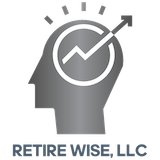Ways You May Be Leaving Money on the Table When You Retire

Make a Good Decision About Social Security:
Most people don't realize there are ways to optimize Social Security. The proper analysis and planning can uncover the optimal way to claim your social security and the social security administration will not help you with this, they are actually not allowed to give advice.
It is important to understand how the program was designed to help seniors. According to the Social Security Administration, Social Security is only supposed to replace, on average about 40% of workers’ wages in retirement, but almost half of all married couples and 71% of single people are using their Social Security income as at least half of their monthly income.
A mistake many people make is they take their full Social Security benefits right when they turn 62 when they become eligible, regardless of whether they are still working. By claiming Social Security at the earliest possible date, many people are leaving a substantial amount of money behind because the longer you wait, the greater the benefits become.
To give a sense of just how much of a difference this can make, consider that each year you wait past your full retirement age to collect Social Security, your benefit grows by around 8%, up to age 70. The difference between claiming at 62 and claiming at 70 can be enormous. You might be leaving money on the table — up to $100,000 or more.
It is not a one size fits all and waiting to 70 may not be right for everyone, sometimes it is an age between 62 and 70. The proper analysis can pinpoint the best options and timing. This can then be factored into your overall retirement plan. We can create a social security bridge, to fill the gap between retirement and when you start to claim social security.
Loosen Up Some of Your Investments:
Another way older Americans are leaving money on the table in retirement is that they are not taking on enough risk with their investments. Investing all of your money too conservatively in retirement can hurt in the long run. Becoming more conservative in retirement makes sense, but there’s a level of risk that can still be maintained.
You may be avoiding the stock market in fear of volatility, in favor of investing in CDs or treasury bonds. But by limiting yourself in your investments and taking too conservative an approach, you could miss out on substantial gains. There is a way to have the proper balance and based on your risk tolerance.
A good strategy is to maintain a well diversified investment mix. Try looking into a variety of investments — some risky, some rock solid secure and others in between. The exact percentages in each type of financial product should be based on your wealth, needs and goals. Also, you can look at index funds rather than individual stocks. Another, more strategic option, is to apply a bucket investment strategy. For example:
Invest money you need in the short term conservatively and money that you won’t need till later more aggressively. You can use a three-bucket strategy, that is conservative for the short term bucket at the bottom, little less conservative for the second, mid-term bucket and more aggressive for the long term top bucket, invested with the potential for more return. The buckets then trickle down and feed the lower ones. This will help with sequence of returns risk as well as inflation.
If you are worried about stock market volatility, we can show you ways to protect your money from a stock market crash.
Don’t Forget 401ks at Previous Employers:
A recent survey found that 50% of Americans who have participated in a 401k plan left an account at a previous employer. If that is not leaving money on the table, then I don’t know what is. Plus it is not chump change that is being left behind, nearly a quarter of the orphaned accounts are valued between $10,000 and $50,000.
When you leave an account at a previous employer, it is unlikely that you are monitoring and managing the account to maximize growth. Plus, those past 401k's, left in a past employers account are riddled with fees, that are higher when you are no longer employed by that company.
Rolling over accounts is almost always a good idea, so long as you follow the rollover guidelines carefully, which we can help with that.
Watch Out for Withdrawals:
Many Americans in retirement are saying goodbye to a lot of money as they are withdrawing funds from their savings. This is because most don’t have a formal plan for withdrawals. Most people just concentrate on the accumulation phase and not at all to the distribution phase after you retire. You need a proper drawdown plan. The impacts of not managing the distrubition phases proper can be big.
Many retirement savings accounts have tax implications, so it’s important to be aware of the account type from which you’re withdrawing as well as the taxes that come into play. Yes, there are some accounts for which withdrawals are not taxed, so it’s important to be aware of the differences among your accounts upfront. A plan should be put into place along with your retirement budget, ideally before you retire. If you are already in retirement, make a plan as soon as possible.
Tax implications are also different from state to state. For example, 13 states in the United States tax Social Security benefits. So be sure to find out as much as possible about your individual state’s laws on taxing retirement benefits as well as the tax implications on all of your retirement savings accounts.
Your core Social Security benefits can also be taxed as well, based on your provisional income, regardless of what state you are in. This needs to be planned for properly to avoid. You need to also make sure you account for required minimum distributions (RMD's) from qualified accounts, if you don't take them at the right time and amount, you will be paying a hefty penalty tax.
A proper plan allows you to easily compare your retirement income with your retirement expenses and see when you need to make withdrawals. It also takes into accountyour required minimum distributions and taxes on social security. The proper analysis/planning helps to make better financial decisions — being smart about when you spend money and from which account.
Think About Taxes:
Retire Debt Before You Retire:
Before you retire, your goal is to amass resources to live from when you stop working.
After you retire, you have a relatively fixed stockpile to make ends meet. If you are still paying off debt, the interest payments is definitely money that is being wasted, especially if the interest rate you are paying is greater than the interest rate you could be earning if the money was in savings or investments. Improve the strength of your retirement plan with the proper analysis and plan that is tailored to you.
Consider Your Home Equity:
When people calculate what assets they have for retirement, they usually think about savings and income. However, if you own your home, your home equity may be your most valuable asset overall. This money can be tapped for retirement through downsizing, getting a reverse mortgage or even by renting out a room. Your home is a valuable resource that really should be considered as part of your overall retirement plan.
Depending on what it is worth, it could easily add hundreds of thousands to your usable assets. Factoring this into your plan let’s you experiment with different ways of releasing home equity so you can see how your overall financial picture is shaped by these decisions.
If you would like to discuss any of these areas or need help, I would be happy to help!
Contact me at [email protected]
Check out our website at www.retirewisepro.com
#RetireHappy #retirementplanning #retirementincome







